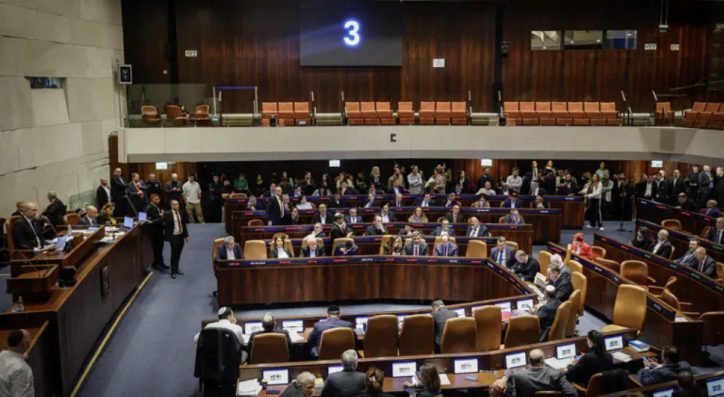The month of Tammuz—historically linked with idol worship and spiritual downfall—offers a powerful opportunity for introspection and transformation. Adina Ellis explores how ancient missteps echo in modern distractions and how awareness and self-knowledge can guide us toward meaningful tikkun.
The Jewish month of Tammuz has long carried a heavy spiritual charge, historically associated with avodah zarah (idol worship) and profound national loss. From the golden calf incident (Shemot 32) to the breaching of Jerusalem’s walls—which led to the destruction of the Beit HaMikdash—Tammuz reflects the consequences of misplaced devotion. But idol worship isn’t just ancient history. Today, it persists in more subtle, psychological, and emotional forms, often disguised as modern distractions, societal obsessions, and internal distortions.
From Ancient Idols to Internal Misalignment
The Torah’s depiction of the spies in Parshat Shelach, who returned during Tammuz with a warped vision of the Land of Israel, reveals the month’s deep potential for distortion. The spies gave power to what they feared, weakening themselves in the process. “We cannot ascend… they are stronger than us” (Bamidbar 13) is not only a historical failure—it is a timeless reflection of what happens when we assign false authority to fear, perception, or power.
This theme is echoed in Tehillim (115:4–8), describing the emptiness of idol worship:
“Their idols are silver and gold… they have mouths, but do not speak… those who make them become like them.” Idol worship is more than theology; it’s the emotional disempowerment that results from misplacing our energy and trust.
Yechezkel’s vision of women weeping for the pagan deity Tammuz at the Temple’s entrance (Yechezkel 8:14) captures this emotional misalignment. In Babylonian tradition, this idol was mourned in summer and “resurrected” with the return of rain. Naming this summer month after such a figure is a jarring reminder of how deeply misplaced emotion can fuel falsehood. When our emotional longings are attached to empty promises, we risk becoming spiritually hollow.
Tammuz as a Time for Tikkun
To heal the distortions of Tammuz, we must reclaim our emotional and spiritual energy. This is the essence of tikkun—rectification. We must ask ourselves hard questions: Where am I directing my inner power? What do I truly serve? These are deeply personal inquiries, and tools like the Enneagram personality system can offer surprising insight.
The Enneagram identifies nine core personality types, each with its own strengths, fears, and blind spots. While each type has value, it can also overemphasize a specific emotional driver—be it control, approval, or success—and unintentionally turn that need into an emotional idol.
Miriam Adahan, in her book Awareness, draws from the Enneagram to highlight how psychological patterns can become spiritual obstacles. For example, a personality dominated by fear may “idolize others” and seek constant reassurance. Recognizing this tendency allows for tikkun: the shift toward inner faith and emotional resilience.
Recognizing Today’s Avodah Zarah
Modern-day avodah zarah doesn’t always look like bowing to statues. It often takes the form of excessive self-image, addiction to approval, digital distractions, or blind conformity. These “idols” steal our time, distort our values, and make us forget our divine mission.
As Rabbi Shlomo Wolbe explains in Alei Shur, change begins with self-awareness. When we examine where we invest our energy, and what falsehoods we empower, we begin the sacred work of reclaiming our agency.
Are we, like the women of Yechezkel’s vision, mourning after something unworthy? Are we clinging to outdated fears or illusions like those who built the golden calf? Or can we shift direction—toward inner truth, resilience, and divine purpose?
Choosing Wisely: The Real Battle of Tammuz
Tammuz is not only about danger—it’s about choice. As Yehoshua charged the people:
“Fear Hashem and serve Him… remove the gods your fathers served… choose this day whom you will serve” (Yehoshua 24:14–15).
Our spiritual and emotional longings can either diminish us or refine us. In a world full of noise and misdirection, Tammuz calls on us to recalibrate, to ask: Are we empowering truth or illusion? Whom—and what—are we truly serving?
Let this Tammuz be a turning point. Let it be a time when we detach from false altars, rediscover our inner clarity, and redirect our energies toward what is real, enduring, and Godly.
Adina Ellis is a graduate of the Matan Bellows Eshkolot Educators Institute and a longtime teacher of Tanakh and machshava. Based in Yad Binyamin, she continues to inspire learners through deep, text-based learning and thought-provoking discussions grounded in tradition and modern insight.





